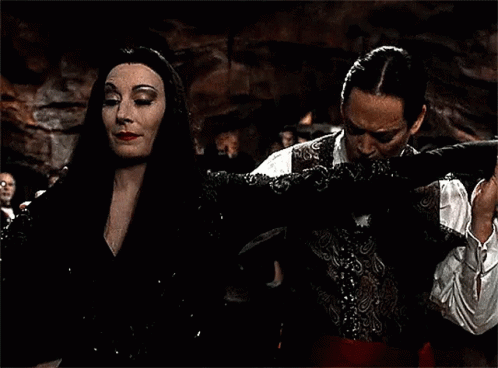Pozdrav iz Dubrovnik 🇭🇷

Hello loves!
I'm in Croatia this week, working hard on the zero draft of my new novel. A zero draft is like a first draft, except you don't let yourself think about how bad it is. I'm 81%-ish of the way through and having a blast with it, but I keep getting distracted by how nice it is to nap in the sunshine instead.
Apart from sun, the Adriatic sea, trees, ruins, and the adorable streetcats of Dubrovnik, here are five things that made my week:
1. Pocket
Do you find yourself leaving dozens of browser tabs open intending to go back and read interesting articles later? Try Pocket. You add stuff to your reading list with the quick tap of a browser extension button, so you can read it later at your leisure (say, on your phone when you're sitting on the loo).
I've rediscovered Pocket recently, and it's really upped the quality of my mindless scrolling time. Recent faves: a gorgeous essay by CJ Hauser - "The Crane Wife" - about processing a called-off engagement by joining a scientific expedition studying whooping cranes; "The Devil Problem" - a remarkable profile of genius religious scholar Elaine Pagels, who revolutionised our understanding of the Gnostic Gospels and the divisions in early Christianity; and Kimon de Greef's totally wild "The Pied Piper of Psychedelic Toads".
2. "Nothing Should Surprise Us"

Dubrovnik has a fascinating museum of Communist/Socialist history called the Red History Museum, featuring full recreations of 1970s Yugoslavian homes, down to the mustard-green velvet-brocade sofas.
Yugoslavia was a Communist country from 1946 until 1990, when it broke up into the modern-day countries Croatia, Montenegro, Bosnia, Kosovo, Serbia, Slovenia etc. The form of Communism practiced here was a bit different to the USSR and China: it was less centralised, with more factories and farms run as worker cooperatives, and devolved decision-making rather than pure central planning. And it somewhat worked: from the 1950s to the 1980s, Yugoslavia was one of the fastest growing economies, similar to South Korea. Look, it was no utopia: it was a cruel, repressive state built around a cult of personality for their president-for-life, and there were simmering ethnic tensions that ultimately ripped the country apart. But it's fascinating to reflect on the 20th century's different experiments in how societies can be organised.
In the 60s, the state ran regular drills to make sure the populace were prepared for attacks from enemies and natural disasters. In 1967 half of Croatia's population participated in a disaster drill on a single day (over 2-million people!) under the title "ništa nas ne smije iznenaditi", "nothing should surprise us". I feel like we could collectively adopt that as the slogan for 2022.

3. A happy chart
Something else from the Red History Museum that made me smile: this table of infant mortality (year 1) for every 1,000 live births between 1960 and 1990.
| Country | 1960 | 1990 | |
|---|---|---|---|
| Sweden | 16.6 | 6 | |
| UK | 22.8 | 8 | |
| Italy | 43.9 | 8.2 | |
| France | 27.5 | 7.4 | |
| West Germany | 35 | 7.1 | |
| SR Croatia | 70 | 10.7 |
This is something we don't celebrate enough about the 20th Century - the millions of babies (and the people who give birth to them) that do not die every year because of the incredible improvements in healthcare. There is much yet to be done: per birth, a person in Nigeria is more than 200 times more likely to die in pregnancy or childbirth than a person in Sweden; and reactionaries are actively trying to reverse hard-won reproductive rights in parts of the world (*side-eyes the U.S. supreme court*). But we have made so, so much progress.
4. Negotiating a better house price
Don Petty Cash has a great thread about getting a better price if you buy a house (South Africa-focussed, but the principles apply everywhere). The exact price you buy a property for is one of those hugely outsized financial decisions: getting the cost down by 5% can have a bigger impact on your life than diligently skipping hundreds of lattes. It's worth spending time learning figuring out what your negotiation levers are, and pulling them as hard as you can.
Want to save a few hundred grand on a property? Here's how to hustle your dream house for cheaper [Thread]
— Don Petty Cash (@iamkoshiek) February 7, 2021
I'm thinking about this a lot right now, because I'm engaged in the utterly foolish endeavour of trying to buy a flat in London. This is 0% for financial reasons and 100% for emotional reasons: after moving 6 times in 5 years and getting stuck on the opposite side of the world from my loved ones in a global pandemic, the idea of owning a house that nobody can boot me out of has become a near-obsession. I'm still skeptical of residential property as an asset, but the UK rent-versus-buy calculator tells me that buying will likely save me money on housing costs as long as I stay there for 5+ years, which I absolutely intend to do (TRY to make me move again, TRY it!!!). I've got an article here (and a podcast episode) to help you think through if/when buying a home is right for you, and to understand the impact it will have on your finances.
Wish me luck!
5. Eels are weird yo

I'm reading The Book of Eels by Patrik Svensson and can't get over how strange their lifecycle is. It's so weird that the ancients just assumed that they emerged fully-formed out of the mud. To this day, no human has ever witnessed eels breeding, something they do only in the last year of their 50-year-long life, after swimming thousands of miles to a specific spot in a distant ocean. Why, eels?!
If you like eels, I can highly recommend a visit to Ely, a little town in Cambridgeshire so obsessed with them that villagers used to pay their taxes in eels, locals engrave eel-facts on their gravestones, and they still throw an annual eel festival (mark your calendars for 5 June).
--
Wishing you sunshine, disaster-preparedness, and barrels of eels,
Sam






Member discussion